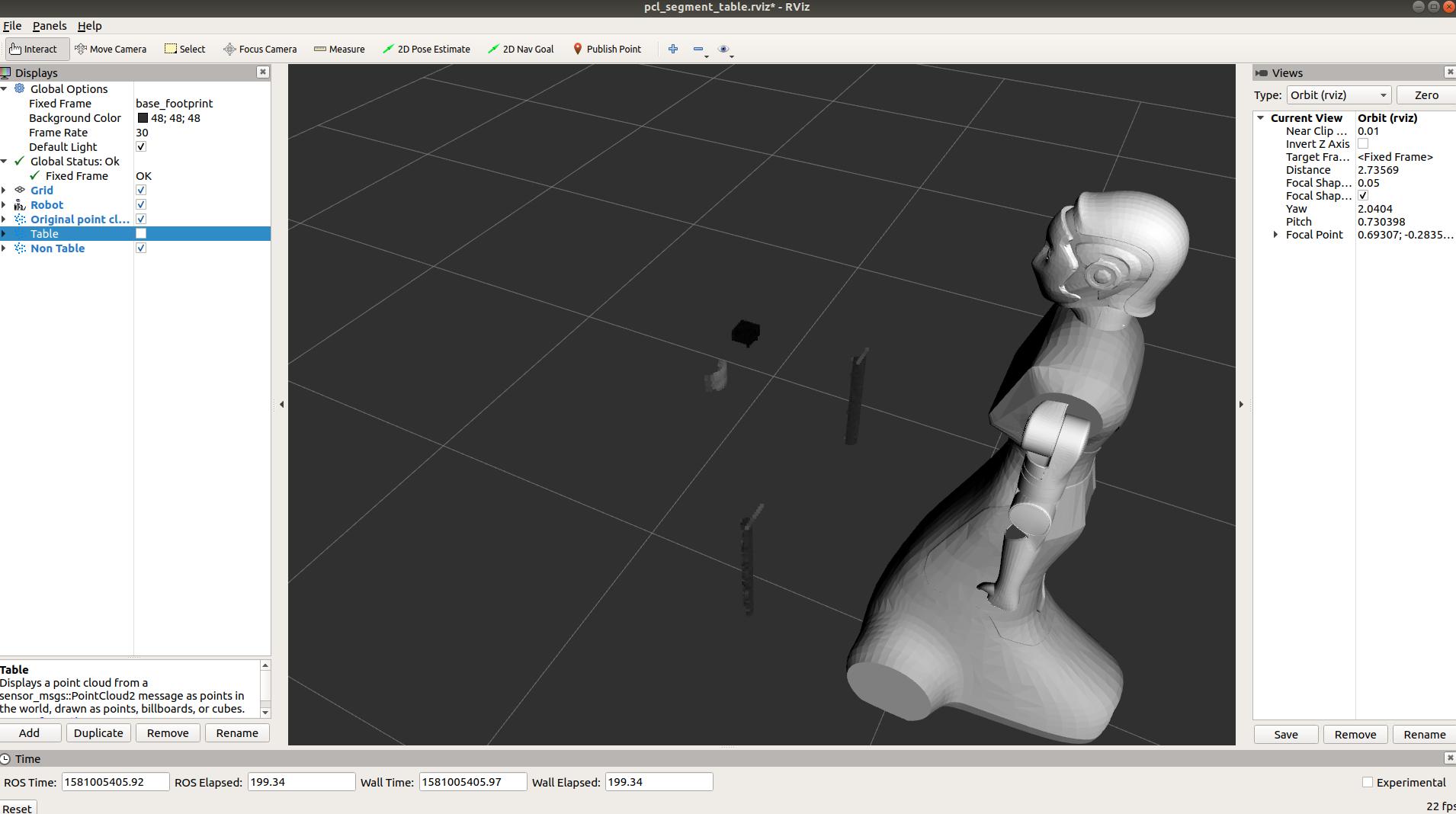Author: Jordi Pages <jordi.pages@pal-robotics.com>
Maintainer: Sara Cooper <sara.cooper@pal-robotics.com>
Support: ari-support@pal-robotics.com
Source: https://github.com/pal-robotics/ari_tutorials.git
| |
Table segmentation (C++)
Description: Example of plane segmentation applied to the detection of a table and the objects on top of it.Tutorial Level: INTERMEDIATE
Next Tutorial: Cylinder detector
Contents
Purpose
Example of how to use the basic filters of PCL to achieve segmenting a table and all the objects on top of it.
Pre-Requisites
First, make sure that the tutorials are properly installed along with the ARI simulation, as shown in the Tutorials Installation Section.
Execution
Open two consoles and in each one source the workspace
cd ~/ari_public_ws source ./devel/setup.bash
In the first console launch the simulation
$ roslaunch ari_gazebo ari_gazebo.launch public_sim:=true world:=objects_on_table
ARI will be spawn in front of a table with several objects.
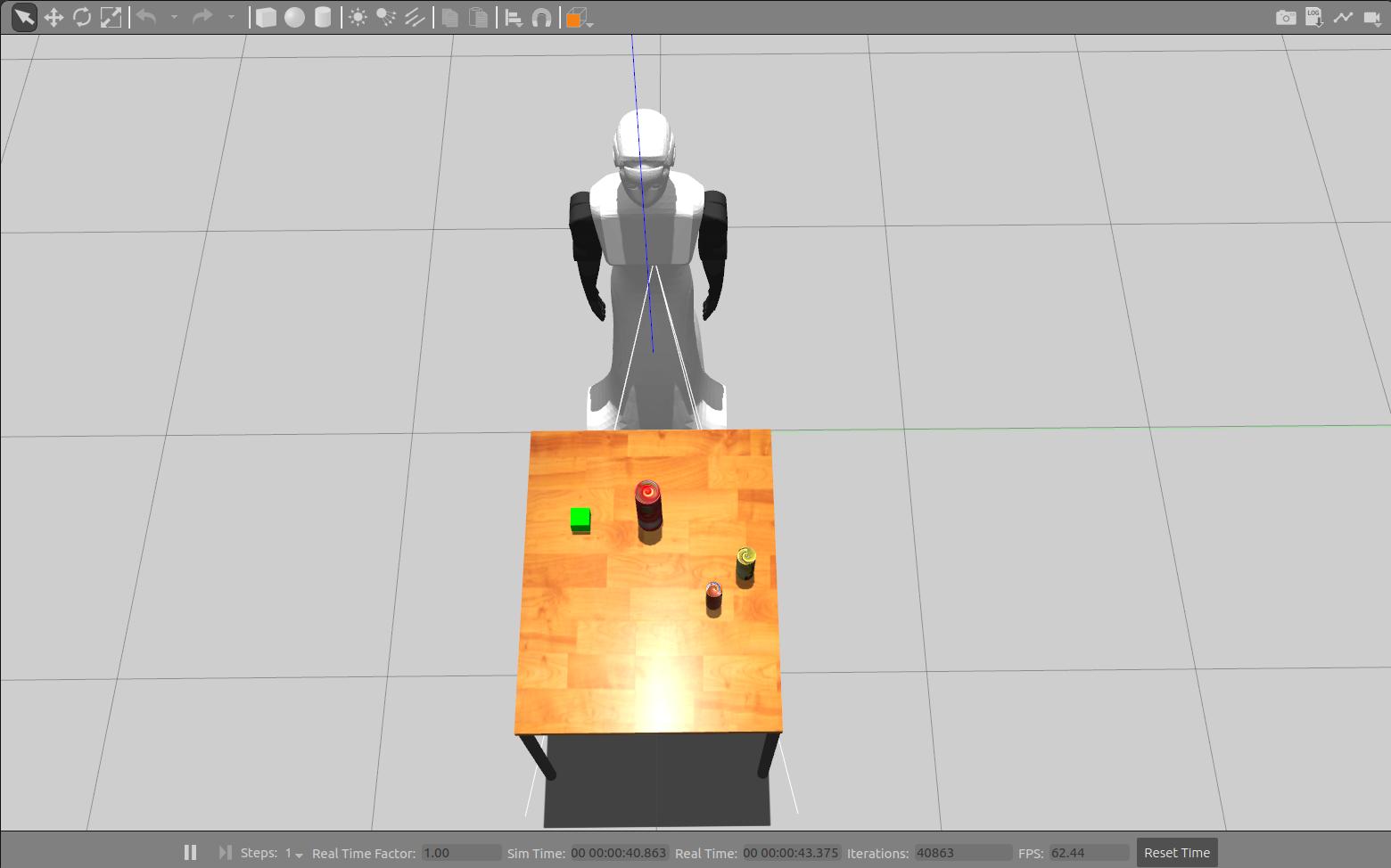
In the second console load an specific file with motion definitions
$ rosparam load `rospack find ari_pcl_tutorial`/config/pcl_motions.yaml
Please, be sure that the command worked well. With
$ rosparam list
be sure that /play_motion/motions/look_down/... is in the list.
Now run a graphical action client interface
$ rosrun actionlib axclient.py /play_motion
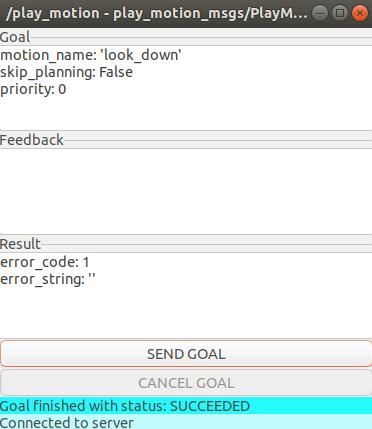
In the GUI that shows up write the following text in the Goal text box
motion_name: 'look_down' skip_planning: True priority: 0
And press the SEND GOAL button. The robot will lower the head in order to look at the table.
Close the axclient GUI and now run the following launch command
roslaunch ari_pcl_tutorial segment_table.launch
Rviz will appear with ARI in front of a colored point cloud representing the table, the objects on its top and a part of the floor.
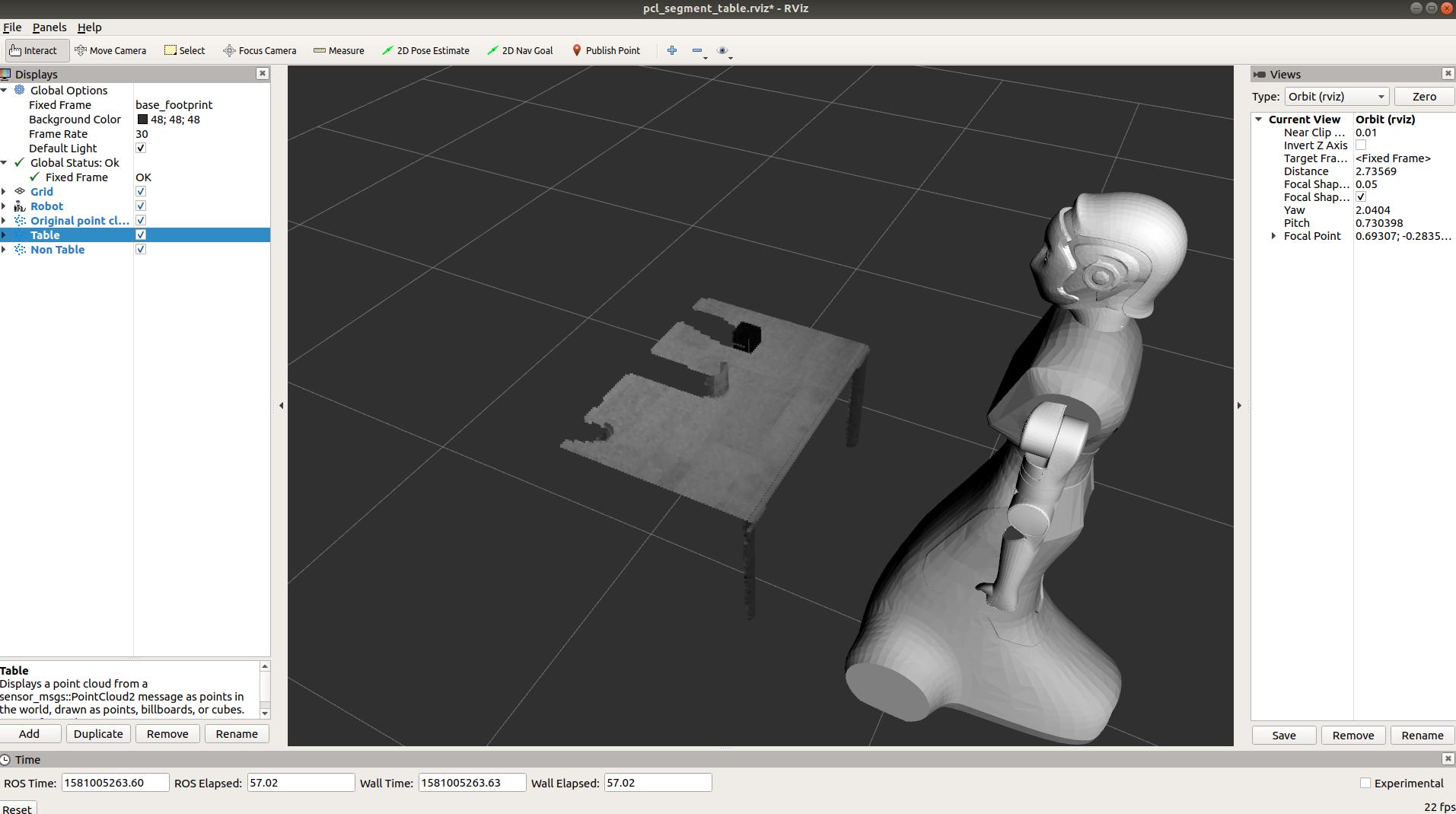
The segment_table node subscribes to the point cloud obtained by the RGBD camera of ARI's head and applies several filters in order to segment the table. The node first applies a passthrough filter in order to remove the floor points. Then, a downsampling is applied in order to speed up subsequent computations. Afterwards, the main plane, i.e. the table, is located using sample consensus segmentation. Finally, outliers are removed using statistical trimming of those points too far from its neighbours.
The node publishes two additional point clouds:
/segment_table/plane /segment_table/nonplane
The former topic contains the portion of the original point cloud which has been considered taking part of the table.
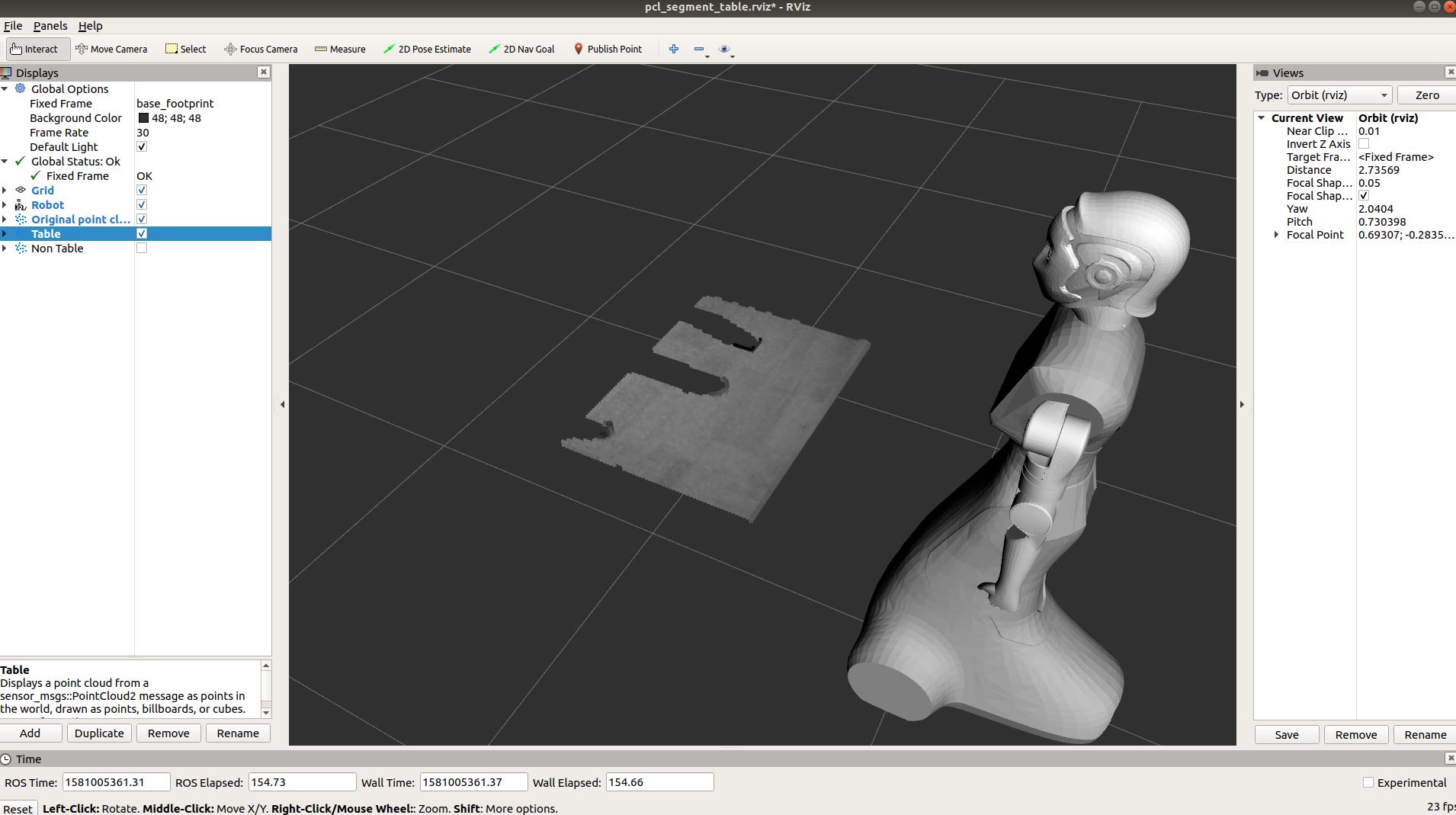
The second point cloud contains the points corresponding to object lying on top of the table.
